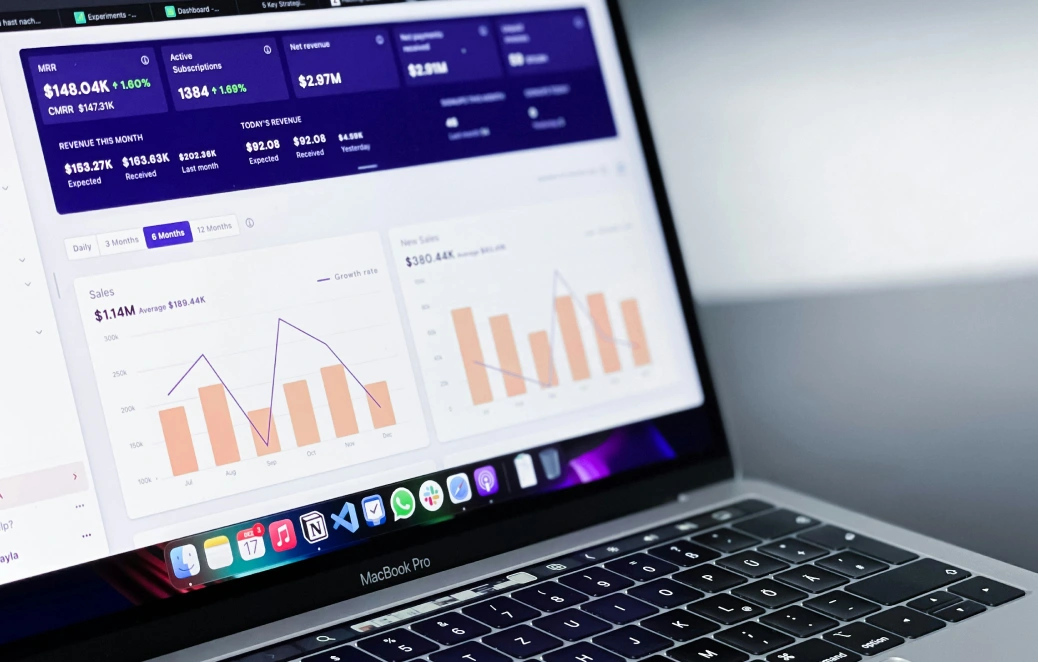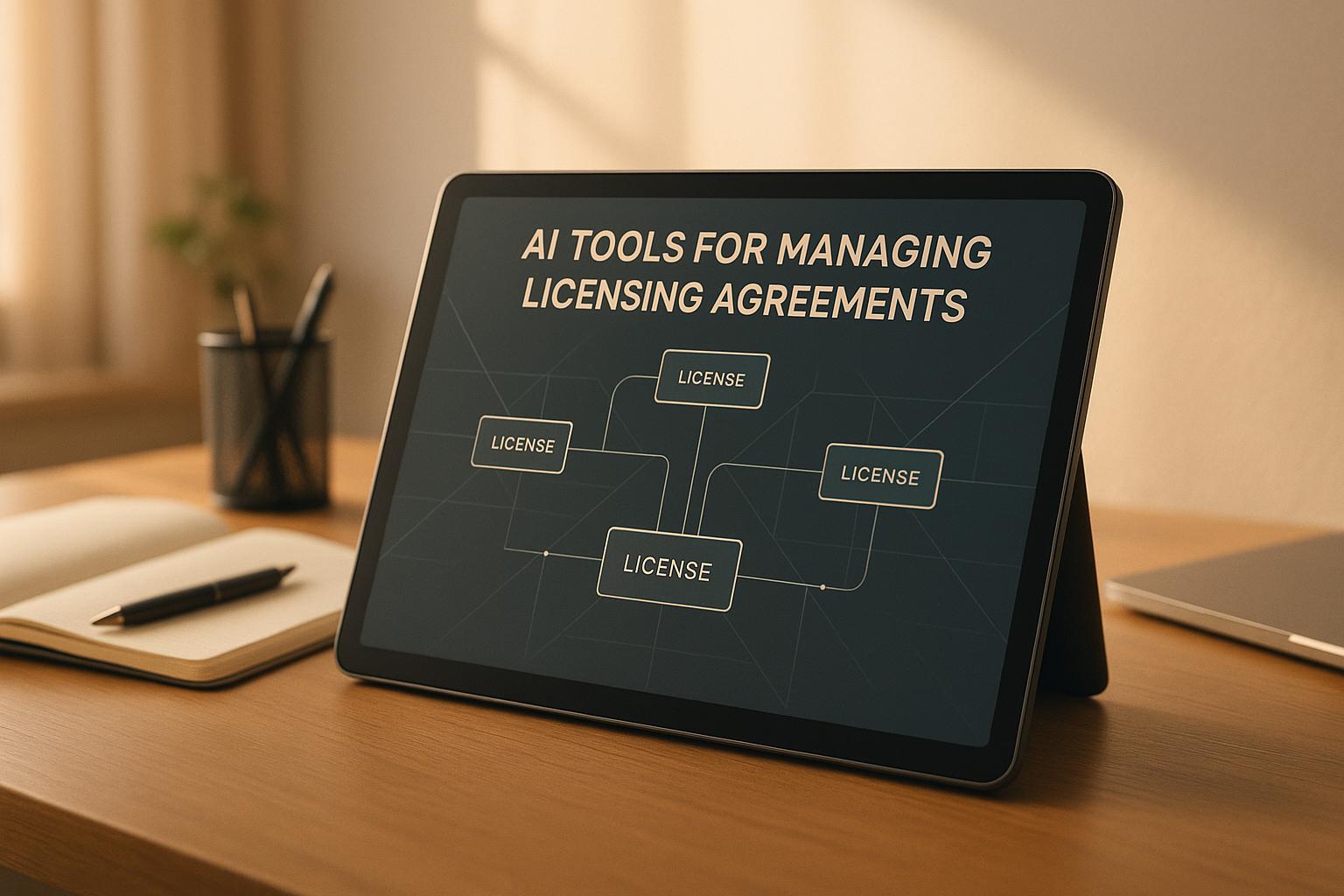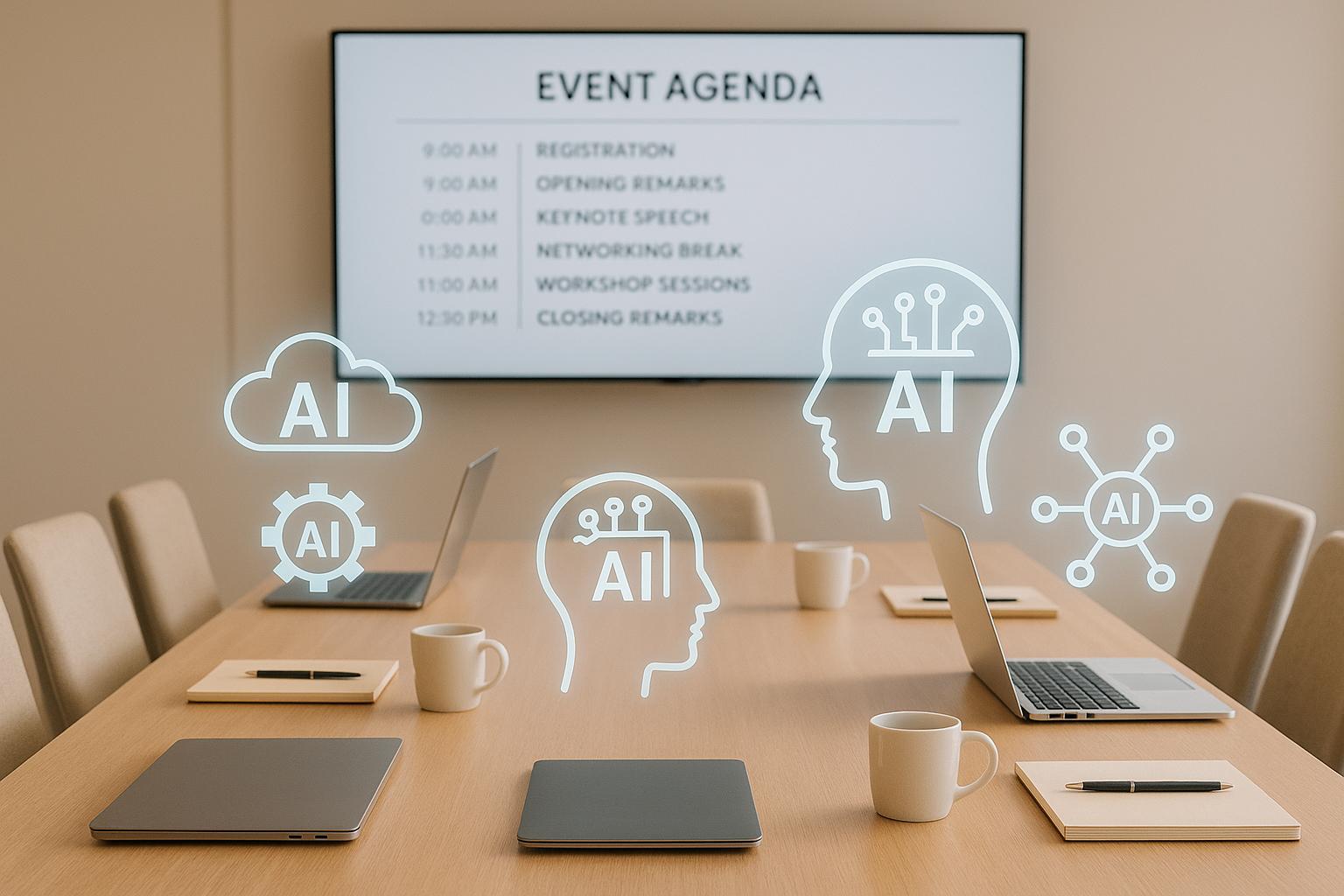AI Tools for Speaker Coaching in Events

Chief Executive Officer
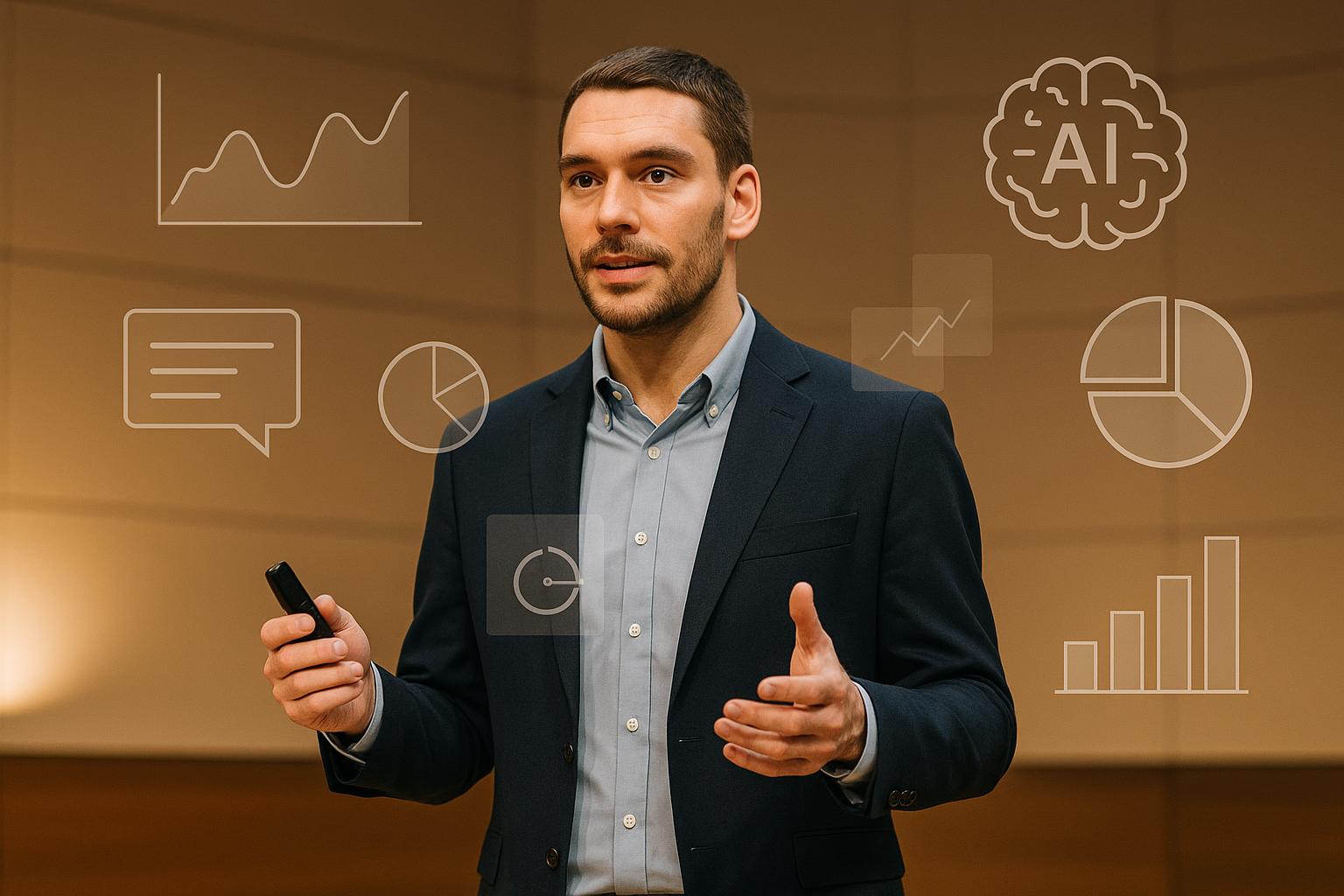
AI tools are changing how speakers prepare for events by offering real-time feedback, objective analysis, and personalized coaching. These tools evaluate tone, pacing, gestures, eye contact, and audience engagement, helping speakers refine their delivery more efficiently than traditional methods. They work alongside human coaches to provide data-driven insights, making preparation faster and more accessible.
Key Points:
- Pre-Event: AI assists in content creation, slide design, and refining presentation structure.
- During Events: Real-time feedback on delivery and audience engagement helps speakers adjust on the spot.
- Post-Event: Performance analysis highlights strengths and areas for improvement, enabling long-term growth.
Benefits:
- Scalable and cost-effective for events with multiple speakers.
- Consistent, data-backed feedback tailored to individual needs.
- Accessible 24/7 for practice on-demand.
Challenges:
- Data privacy concerns require careful vendor selection and strong security measures.
- Limited emotional understanding and contextual awareness compared to human coaches.
- Risk of over-reliance on metrics, potentially reducing natural delivery.
AI tools, when combined with human expertise, can improve speaker preparation and event outcomes. However, organizations must address privacy and integration challenges to maximize their potential.
Master Public Speaking with Yoodli, the AI-Speech Coach
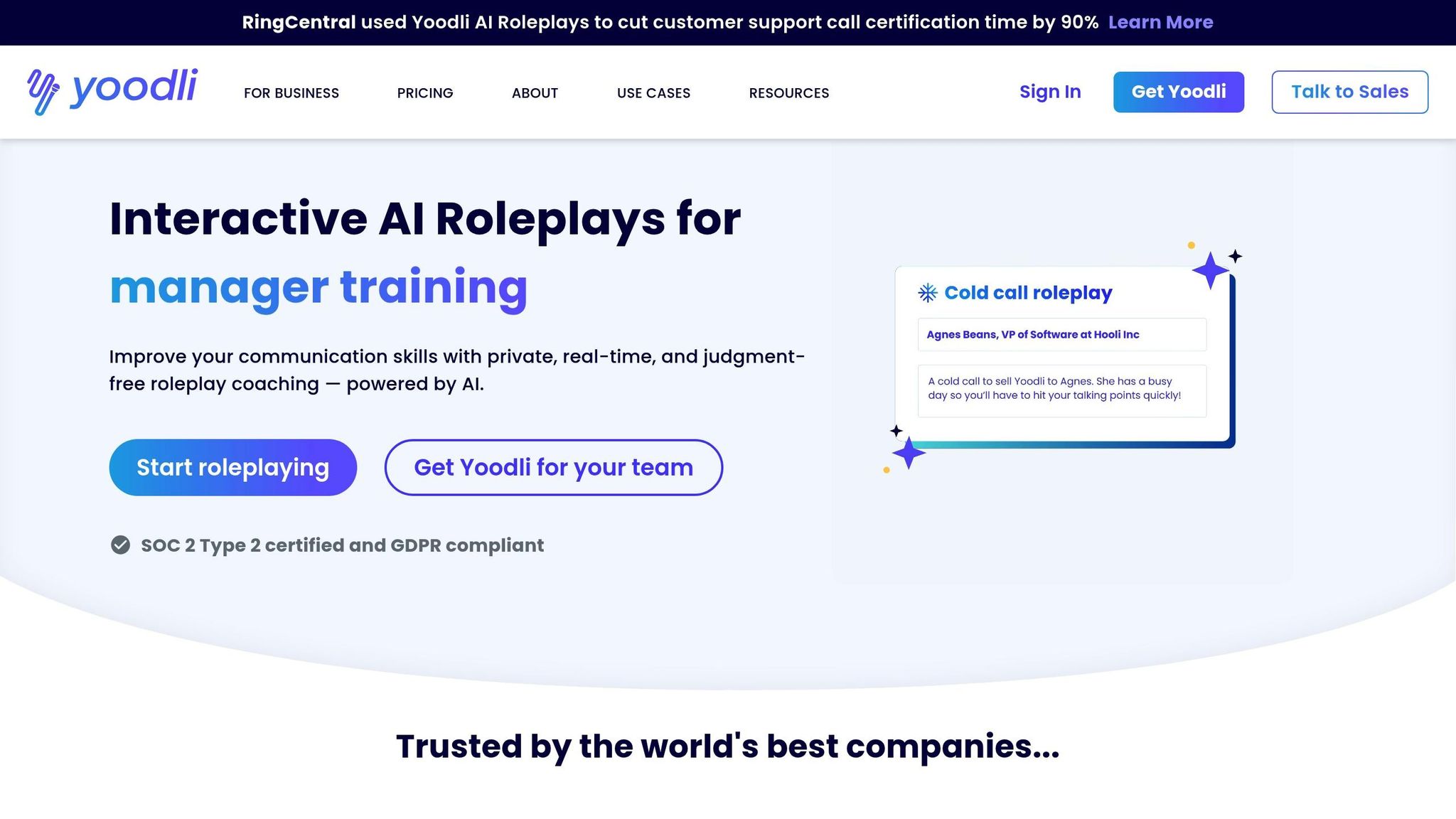
Leading AI Tools for Speaker Coaching
AI-powered tools for speaker coaching are transforming how individuals refine their presentation skills. By offering quick, data-driven feedback, these tools help speakers improve their delivery, speech clarity, and overall communication. The result? Speakers who are better prepared and more confident for their events.
How AI Tools Work in Practice
Today's AI tools analyze video, audio, and text data simultaneously. They assess everything from facial expressions and gestures to vocal tone and filler words, providing insights into physical presence and speech clarity.
Using natural language processing, these tools evaluate the content's structure and clarity. Some even offer real-time feedback, allowing speakers to make immediate adjustments during practice sessions.
Progress tracking is another powerful feature. These systems keep detailed records of a speaker's development, generating reports that highlight areas of improvement and ongoing challenges. This makes it easier to identify what’s working and where more effort is needed.
For example, companies like Corporate Optics rely on AI insights to maintain high presentation standards for large-scale events. This integration of AI into speaker preparation ensures consistent quality and lays the groundwork for discussing best practices in AI implementation later in this guide.
AI Speaker Coaching Throughout Event Production
This section dives into how AI speaker coaching tools play a role in every stage of event production, from preparation to post-event analysis. These tools provide consistent, data-driven support, ensuring speakers can perform at their best throughout the entire process.
Pre-Event Speaker Preparation
Preparing for an event can be overwhelming, but AI tools simplify many of the tasks that often take up valuable time. They help speakers craft impactful content while ensuring their presentations meet event standards and resonate with the audience.
One of the key areas where AI shines is content creation. Tools like the Cvent AI Writing Assistant can quickly generate session descriptions and speaker bios, making it easier for event organizers to handle these essential details, even when resources are stretched thin.
When it comes to visual presentations, AI tools like Beautiful.ai help speakers design polished, professional slides that stick to branding guidelines and look visually appealing. Similarly, Canva's AI features allow users to create graphics and illustrations with ease, offering options like background removal for photos and royalty-free music for event videos.
For custom visuals, DALL-E 2 creates unique images based on text prompts, which can be used for slides or event banners. On the video side, Synthesia transforms written content into engaging videos, complete with avatars and multilingual voiceovers - perfect for introductions or instructional segments.
AI also plays a role in fine-tuning presentation structure and tone. By reviewing abstracts and outlines, these tools suggest adjustments that enhance clarity and keep the audience engaged.
Real-Time Speaker Support During Events
When the event is live, AI tools provide real-time assistance, helping speakers adapt on the fly. For example, live performance monitoring analyzes vocal patterns, pacing, and other delivery metrics, offering immediate feedback to improve delivery. Audience engagement analytics track reactions in real time, giving speakers insights into how their message is landing and allowing them to make adjustments as needed.
AI also supports the technical side of events. It monitors audiovisual systems, alerting teams to potential issues before they disrupt the event. This ensures a seamless experience for both speakers and attendees, meeting the high expectations of professional event production.
Post-Event Performance Analysis
The role of AI doesn’t end when the event wraps up. Afterward, it analyzes performance data to provide detailed insights into a speaker’s delivery. Metrics like vocal quality, presentation flow, and content effectiveness help identify strengths and pinpoint areas for improvement.
Audience response analysis further breaks down engagement trends, showing which parts of the presentation resonated most. Over time, comparative performance tracking across multiple events allows speakers to measure their progress and set realistic goals for growth. These insights not only help speakers refine their skills but also enable event organizers to enhance future events, creating better experiences for attendees and speakers alike.
sbb-itb-ae35a94
Pros and Cons of AI Speaker Coaching
AI speaker coaching comes with clear advantages and challenges for event production. Recognizing these trade-offs can help event organizers and speakers make smarter decisions about when and how to use these tools effectively.
Benefits of AI Speaker Coaching
One major advantage of AI speaker coaching is scalability. Traditional coaching relies on one-on-one sessions with human experts, which can be costly and challenging to coordinate, especially for events with multiple speakers across different time zones. AI tools, on the other hand, can coach dozens of speakers simultaneously without increasing costs, making it possible to support large-scale events efficiently.
AI also provides consistent feedback at scale. Unlike human coaches, who may vary in their opinions or techniques, AI tools use standardized criteria to evaluate speech patterns, vocal delivery, and presentation structure. This ensures that every speaker receives the same level of detailed guidance, creating a fair and uniform improvement process.
Another strength is personalized coaching. AI systems adjust their recommendations based on a speaker's specific habits. For example, someone who speaks too quickly will get different advice than someone who struggles with pacing too slowly. This tailored feedback happens automatically, eliminating the need for a coach to manually assess each individual's challenges.
AI tools also offer data-driven insights that help speakers focus on measurable areas for improvement. These tools track metrics like vocal variety, pacing, filler word usage, and audience engagement. By highlighting precise areas for refinement, speakers can address specific weaknesses instead of relying on vague or subjective feedback.
Finally, AI coaching is accessible and flexible, offering 24/7 support. Speakers can practice and improve on their own schedule, even at the last minute. This flexibility is especially helpful for events with tight deadlines or budgets, allowing professional-grade coaching to fit a wide range of needs.
However, these benefits come with challenges, which are explored below.
Limitations and Concerns
One significant concern is data privacy, especially for corporate events or sensitive topics. AI tools often analyze speech recordings and presentation content, raising questions about where this data is stored, how it's shared, and whether it's secure. Organizations must carefully evaluate which tools they use and ensure strong protections are in place to safeguard confidential information.
Another limitation is the lack of emotional understanding in AI systems. While human coaches can sense when a speaker is nervous, frustrated, or excited, AI tools lack this emotional awareness. As a result, they might provide feedback that feels impersonal or fail to address deeper confidence issues that affect performance.
Integration challenges can also arise. Many AI coaching platforms operate independently from the software and tools speakers already use, such as presentation programs or event management systems. This can create extra steps and disrupt workflows, making the preparation process less efficient.
AI tools also struggle with contextual awareness. For example, a delivery style that works for a technical conference might not suit a motivational corporate event. Human coaches naturally adapt to audience expectations and event-specific nuances, something AI systems currently can't replicate.
Another drawback is the risk of over-reliance on metrics. Speakers might focus too much on meeting AI-recommended targets - like maintaining a specific pace or volume - at the expense of their natural style and personality. This can result in presentations that feel technically polished but lack authenticity.
Finally, technical reliability is a potential issue. AI tools depend on stable internet connections, functional servers, and regular software updates. Any technical hiccups during critical rehearsals or last-minute practice sessions can disrupt preparation when time is limited.
The success of AI speaker coaching ultimately depends on how thoughtfully it’s integrated into the event planning process. Balancing the precision and efficiency of AI with the creativity and intuition of human insight can help speakers achieve their best.
Future Trends and Implementation Best Practices
As AI-powered coaching tools continue to make their way into event production, tackling privacy concerns and ensuring smooth integration are critical. Here are some practical steps to implement these tools effectively while addressing the challenges discussed earlier.
How to Implement AI Tools Effectively
The first step in successfully integrating AI tools is securing speaker consent. Event organizers should have open, honest conversations about how these tools will be used, what kind of data will be processed, and the safeguards in place to protect that information. This transparency not only builds trust but also helps speakers weigh the benefits against any potential risks.
When it comes to data security, organizations need to step up their game. Using strong encryption, anonymizing speaker data wherever possible, and thoroughly investigating AI vendors' data practices are all crucial steps. Important questions to ask vendors include: What happens to user data? How long is it stored? Is it used to train other AI models? Following privacy laws like GDPR and CCPA is another layer of protection that minimizes legal risks for everyone involved.
AI tools should be framed as a complement to human coaching, not a replacement. While AI can handle routine technical feedback, human coaches bring strategic insights and emotional intelligence to the table. Being upfront about AI’s limitations - such as its difficulty in interpreting complex contexts - helps set realistic expectations and ensures speakers use these tools to enhance, not replace, personalized coaching.
Building privacy into AI solutions from the ground up is essential. This means incorporating protective measures like data masking, role-based access controls, and regular risk assessments to identify and fix vulnerabilities. Pairing these measures with proper training for staff and speakers ensures both security and effective use of the tools.
Training is another key piece of the puzzle. Providing clear guidelines and rolling out the tools gradually - starting with early adopters - allows teams to refine processes and build confidence across the board.
Finally, accountability is a must. Assigning specific team members to oversee outcomes and address issues, whether it’s a technical hiccup or a data breach, creates a safety net for responsible AI use.
The most effective implementations strike a balance between cutting-edge technology and human expertise. Companies like Corporate Optics are already using these practices to prepare speakers more effectively while safeguarding data and keeping the human element front and center.
Conclusion
AI is reshaping how speakers prepare and perform by offering real-time feedback, customized coaching, and performance analytics that go beyond what traditional methods can provide. From dissecting speech patterns to analyzing body language and suggesting improvements, AI has unlocked new opportunities for speakers to refine their craft.
However, true success lies in blending AI with human expertise. While AI is excellent at crunching data and pinpointing technical areas for improvement, human coaches bring strategic insight, emotional support, and a deep understanding of context. The best results come from combining the precision of AI with the nuanced guidance of experienced coaches. This partnership is shaping the future of event production and speaker development.
To fully embrace AI, it’s critical to implement strong data protection policies, ensure speaker consent, and maintain transparency about how data is used. Companies that address these concerns foster trust and encourage speakers to adopt these advanced tools with confidence.
Looking ahead, AI advancements promise even more transformative possibilities, such as enhanced emotion recognition, predictive performance tools, and tailored learning experiences. Organizations that begin incorporating AI now - with proper safeguards and realistic expectations - will be better prepared to take advantage of these future innovations.
For event production companies, integrating AI speaker coaching into their services offers tremendous potential. For example, Corporate Optics combines AI-driven speaker preparation with services like audiovisual design, live streaming, and post-event analytics. This approach highlights how AI can seamlessly enhance every aspect of event production.
FAQs
How are AI tools transforming the way speakers prepare for events?
AI tools are changing the way speakers prepare by delivering instant, tailored feedback on essential elements like speech clarity, pacing, filler words, eye contact, and confidence. Traditional approaches often depend on scheduled sessions and subjective opinions, but AI steps in with immediate, data-based insights that speed up and enhance the improvement process.
These tools can even mimic audience interactions and adjust to each speaker's unique needs, offering a dynamic and practical practice setup. On top of that, they make top-notch coaching more accessible and affordable, giving individuals and organizations the tools they need to sharpen their presentation skills with ease and flexibility.
How can organizations ensure data privacy when using AI tools for speaker coaching?
To ensure data privacy when leveraging AI tools for speaker coaching, organizations must implement robust privacy safeguards and adhere to established best practices. Begin by verifying that the AI tools comply with privacy regulations like GDPR or CCPA. Additionally, use encryption and secure storage solutions to protect sensitive data from unauthorized access.
It's equally important to choose AI platforms that emphasize confidentiality and require explicit user consent before gathering or analyzing any personal information. Beyond that, organizations should develop clear data management policies, perform regular security audits, and promote responsible data usage. These measures not only reduce potential risks but also strengthen trust in the integration of AI within speaker coaching processes.
How can speakers use AI feedback to improve while staying true to their natural style?
Speakers can turn to AI feedback as a handy tool to fine-tune their presentations while keeping their personal flair intact. These tools are particularly useful for addressing technical aspects like pacing, tone, and cutting down on filler words. But the key is to use this feedback to enhance your natural strengths, not to completely alter your delivery style.
To maintain authenticity, take a gradual approach when applying AI suggestions, focusing on areas that naturally complement your speaking style. Think of AI as a supportive coach - there to help you sharpen specific skills while ensuring your unique personality and voice remain the heart of your presentation.
Related Blog Posts
